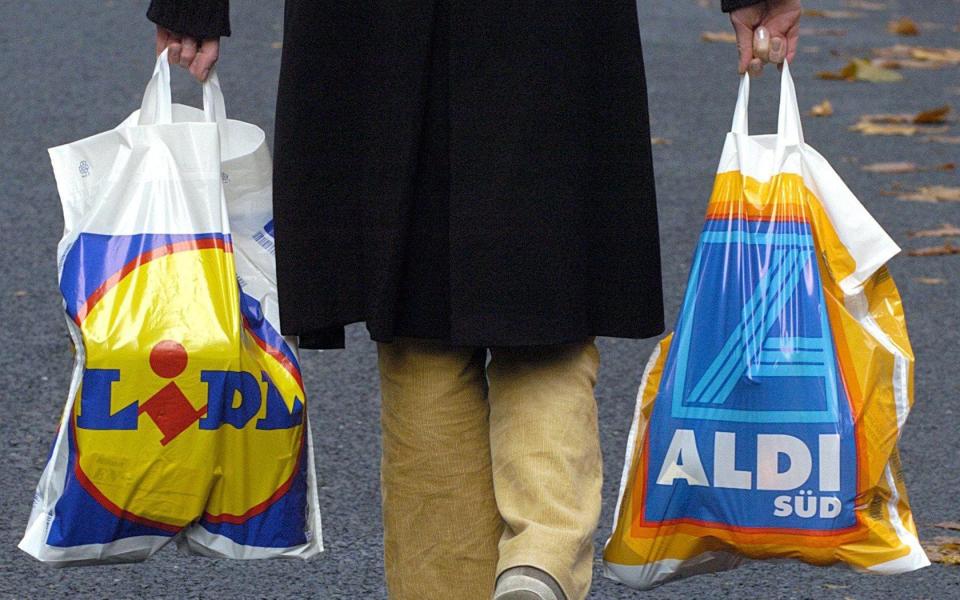British shoppers shrug off higher food prices, with a record £4.2bn expected to be spent in the week before Christmas

British shoppers have been splurging on food and alcohol in the run up to Christmas, despite grocery inflation standing at 3.6pc – the highest level since 2013.
The 'Big Four' of Tesco, Sainsbury's, Asda and Morrisons saw collective growth of 1.9pc during 12 weeks to December 3, making this the ninth consecutive period of increasing sales for the UK’s largest food retailers, according to data by Kantar Worldpanel.
Overall, annual supermarket sales increased in value by 3.1pc during the quarter.
While the cost of groceries is rising, British shoppers are failing to tighten their belts. A record £4.2bn is expected to be rung through the tills of the UK’s biggest supermarkets in the week before Christmas Day, an increase of 3.6pc on the same week last year, according to separate figures published today by Nielsen.
This suggests that shoppers are content to pay more for the same amount of goods rather than rein in spending. The figures come as UK-wide inflation hit 3.1pc in December, the highest level since 2012.
Britons have been particularly indulgent with premium alcohol such as gin, whisky and sparkling wine, which saw growth of 26pc, 10pc and 7pc respectively in the 12-week period, according to Kantar.

Non-alcoholic beer has also proved popular in the run-up to Christmas, with sales up 27pc during the 12 weeks.
Fraser McKevitt, head of retail and consumer insight at Kantar Worldpanel, said: “Despite higher prices, the British public is well into the swing of festive shopping. Alcohol sales are up by nearly £172m compared to this time last year and while volume sales have increased, this impressive growth is mainly a result of consumers choosing more expensive festive tipples."
Kantar's quarterly figures also show that discount chain Aldi continues to prove a big hit with British families, with annual sales up 15.1pc over the past 12 weeks.
Britain’s fastest growing grocer now sits just outside the biggest four retailers with a market share of 6.9pc, up from 6.2pc during the same period last year.
The German grocer saw particular success in the chilled aisle, where sales of convenience products including ready meals and desserts have grown 40pc annually, as well as its Specially Selected line, which is the UK’s fastest growing premium own-label brand with annual sales up 25pc.
Bad sign for inflation. Tesco breaking the totemic £1 level for four pints pic.twitter.com/dOv6wRiHBR
— Tim Wallace (@Tim_Wallace) December 12, 2017
Aldi's performance places the retailer marginally ahead of Lidl, which grew sales by 14.5pc during the 12 weeks.
Kantar said that the Friday before Christmas Day, which this year falls on December 22, is likely to be the biggest shopping day of the year. "Over Friday 22 and Saturday 23 December, we expect shoppers to part with an eye-watering £1.5bn as they fill their trollies ahead of Christmas day,” Mr McKevitt said.
Shares in Morrisons and Sainsbury's plunged on Tuesday afternoon after Kantar's data, which shows the two supermarkets have lost market share over the past three months, was published.

 Yahoo Finance
Yahoo Finance 